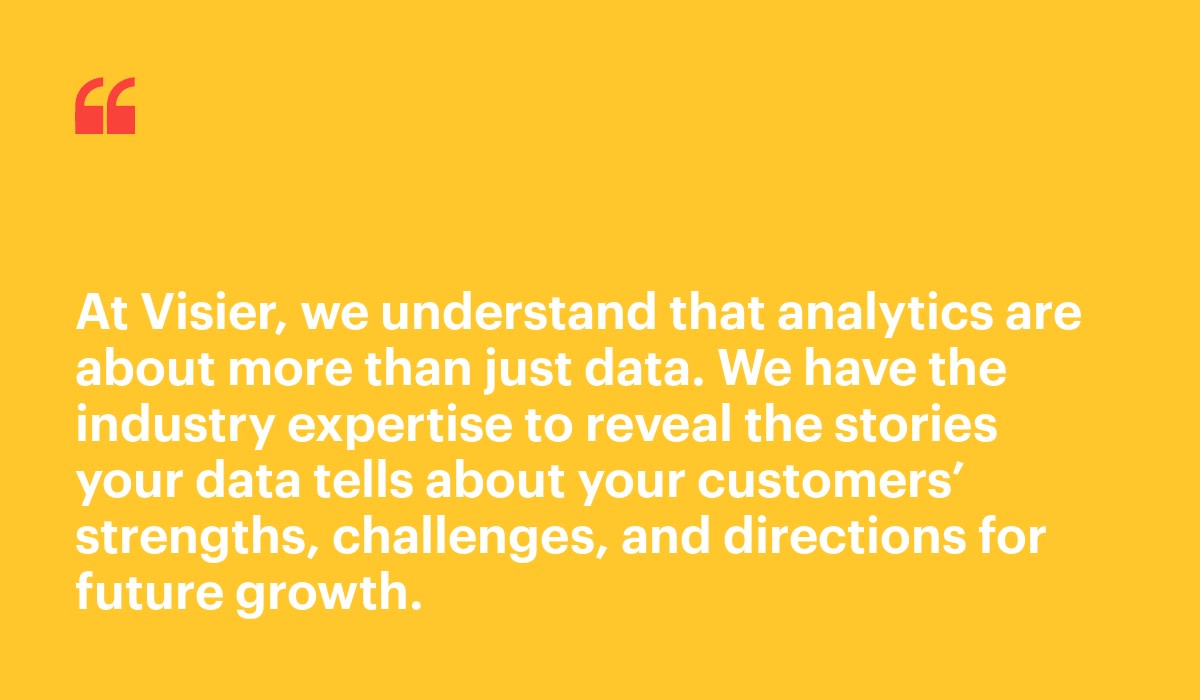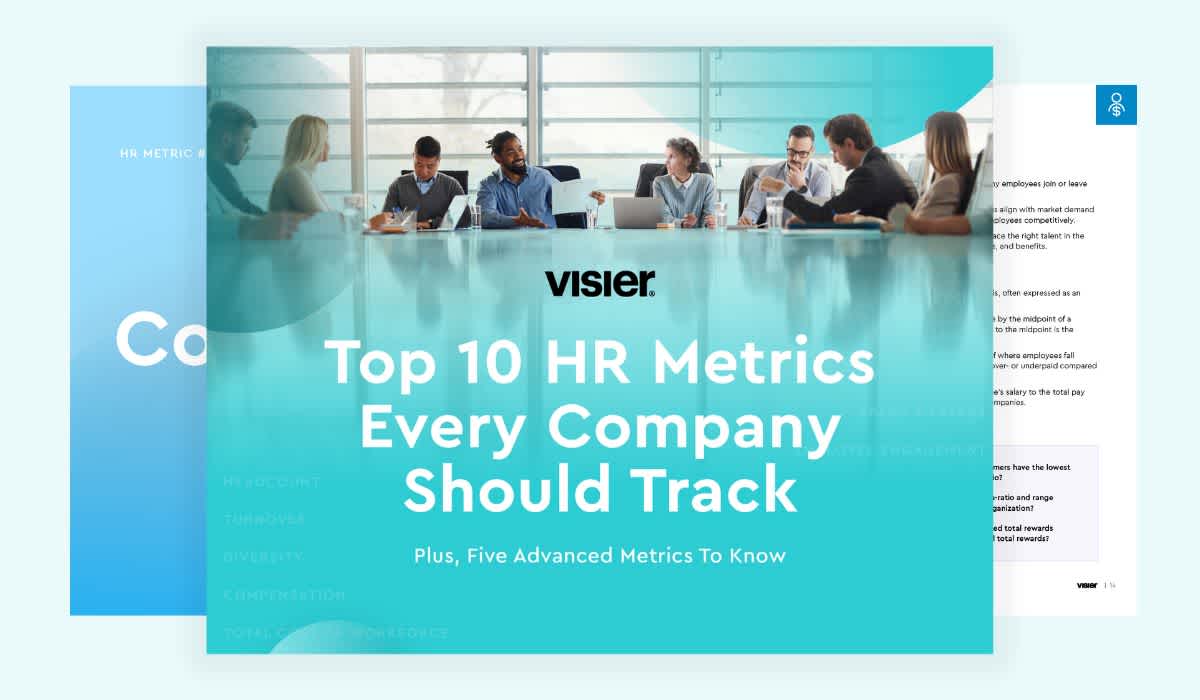Embedded Analytics 101: What Vendors Need to Know
Embedded analytics help HR technology vendors empower users to get the most out of their data. Find out how.

In today’s digitally-driven economy, information is everything. Your customers already know their people data is valuable, and to harness that value, they need to make analytics part of their HR day-to-day.
In the past, people analytics were accessible only to large, enterprise-scale organizations. Embedded analytics has the power to change that. Crafting an analytics experience that truly meets customer needs, and complements an existing solution, has never been so achievable with embedded analytics.
Here, we’ll break down what HR vendors need to know about embedded analytics—why they matter, how to access them, and what Visier brings to the table.
Why embedded analytics?
The ability to confidently make smart decisions grounded in evidence has always mattered, but it’s never been more important than it is today. When COVID-19 transformed the labor landscape overnight, companies were forced to make critical, unprecedented decisions, often with no warning and no prior experience.
Analytics is data translated into actionable suggestions, insights, and predictions. In these situations, it is the only way to make sound, informed decisions in real time.
But very few companies actually had that information available, particularly small and mid-size organizations who would never have access to their own dedicated people analytics solutions.
Build, buy, or partner?
Customers look to their existing HR technology providers for the analytics capabilities that will help them reap value from their data. But for vendors, the path to delivering analytics to their customers is not clear.
Product leaders looking to add analytics to their offering typically review three options:
They can build the solution in-house themselves,
They can purchase a general-purpose business intelligence (BI) tool,
Or, they can partner with an analytics solution and embed analytics as a collaborative venture.
The vast majority of product teams assume that building a solution in-house is the most cost-effective and sustainable approach. But this is often a minefield full of missed opportunities and unforeseen costs.
Just acquiring the resources needed to build an analytics platform, like data warehousing and an ETL process, can cost up to $1.8 million in the first year alone. Additionally, the time and resources required to build means less time spent innovating on the core business offering.
Buying an established BI solution can do away with many of the problems of building homegrown analytics. But a general-purpose BI tool may not be the kind of solution customers are looking for. While reports from BI tools provide important information, they are usually flat, with no drill-down capabilities. This takes away from the deeper analyses into underlying trends, risks, and predictive models that customers are looking for.
The third option, and the reason Visier Embedded Analytics was created, is partnership. By partnering with an established people analytics provider and harnessing their expertise, vendors can bring their customers the analytics functionality they want without sacrificing resources—and go to market exponentially faster than they’d be able to on their own.
What Visier Embedded Analytics does
Visier Embedded Analytics makes advanced analytics capabilities accessible to organizations of all sizes, by integrating powerful analytics into their existing product offering.
Embedded analytics democratize data-driven decision making, revealing the truths and stories within customers’ data. It goes far beyond the generic dashboards and one-size-fits-all reports from a BI tool. Visier Embedded Analytics answers the questions that customers bring to your product to solve.
How it works
Embedded analytics enable vendors to offer their customers the transformative potential of enterprise-level people analytics. Embedded analytics is tailored to the insights customers actually need, and present seamlessly as a native part of the platform environment.

This is a mock-up of what Visier looks like embedded in another product.
Visier Embedded Analytics makes data actionable by integrating directly into a customer’s workflow. For example, analytics can be built into a talent acquisition platform to immediately display the pipeline funnel and highlight gender diversity to a recruiter. By embedding insights directly where users are already taking action, data becomes relevant and applicable to daily work, with no burden of labour on customers.
Unlike BI tools, with Visier Embedded Analytics the data is just the jumping-off point to a guided analytics experience. Question-based storytelling makes data-based planning and decision-making accessible to people working at every level of customer organizations, no matter their data literacy or technical expertise.

Why partner with Visier?
At Visier, we understand that analytics are about more than just data. We have the industry expertise to reveal the stories your data tells about your customers’ strengths, challenges, and directions for future growth.
Visier approaches embedded analytics as a true partnership. We help our partners craft their story and customer messaging, develop their product, and advise on pricing and packaging. Visier Embedded Analytics offer value across the entire employee lifecycle, from talent acquisition and headcount to diversity, learning, and workforce planning.
Vendors that partner with Visier for embedded analytics, like Paycor, see growth across multiple areas of their business. Top-line revenue increases as a result of adding analytics to the core offering. This also makes the core offering more attractive to a wider net of prospects, increasing revenue potential further. And, by leveraging Visier’s domain expertise, vendors can free up the resources needed to continue innovating on their core solution, improving customer retention.
Visier Embedded Analytics is truly the grand slam: partners can close more deals, increase sales growth, and boost product retention.



